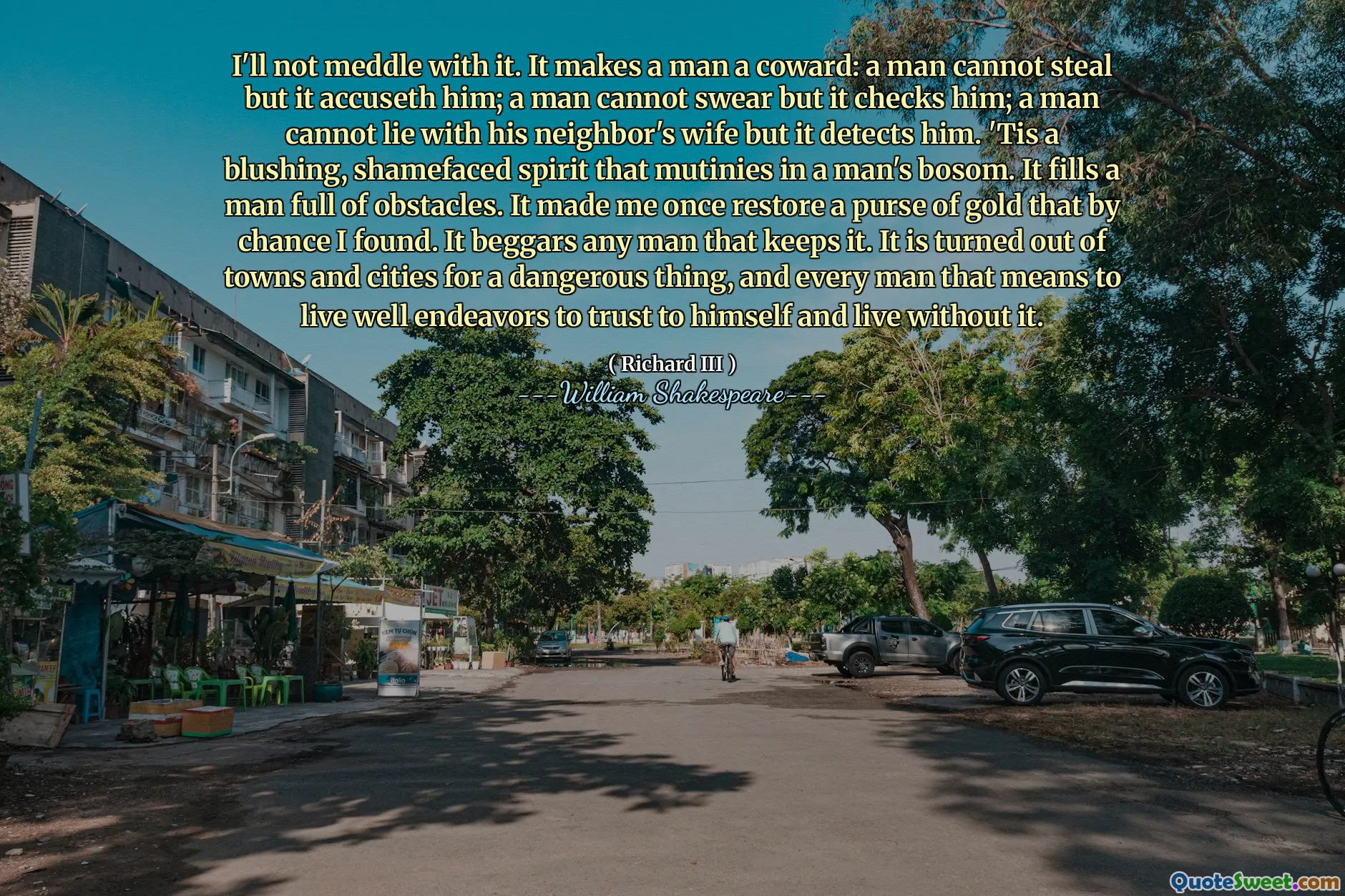
I'll not meddle with it. It makes a man a coward: a man cannot steal but it accuseth him; a man cannot swear but it checks him; a man cannot lie with his neighbor's wife but it detects him. 'Tis a blushing, shamefaced spirit that mutinies in a man's bosom. It fills a man full of obstacles. It made me once restore a purse of gold that by chance I found. It beggars any man that keeps it. It is turned out of towns and cities for a dangerous thing, and every man that means to live well endeavors to trust to himself and live without it.
The speaker reflects on the detrimental effects of guilt, highlighting how it undermines a person's integrity and courage. Guilt acts as a moral compass, making a man feel accused for wrongdoing, whether it involves theft, lying, or infidelity. It emerges as a shameful force that disrupts one's inner peace and creates barriers in life, suggesting that those who harbor it suffer greatly.
The speaker shares a personal anecdote about being compelled by guilt to return found money, illustrating its power to influence behavior. Guilt is portrayed as a societal outcast, one that individuals strive to avoid if they wish to lead a virtuous life. In this way, the speaker advocates for a life free from the burdens of guilt, promoting self-reliance and personal responsibility.






